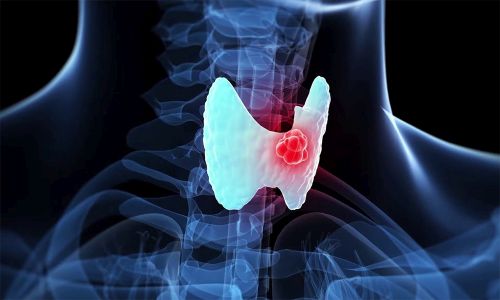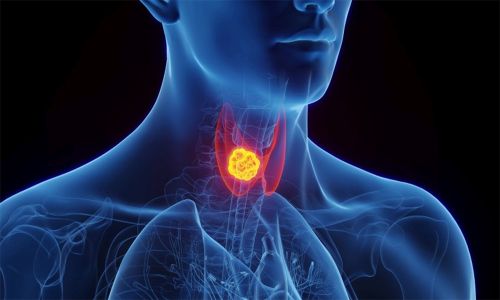Thyroid cancer is a disease that occurs with the growth of cell abnormalities in the thyroid gland. Thyroid cancer surgery is the process of surgically removing cancerous tissue. It is determined according to the stage and type of cancer. The type of thyroid cancer affects the scope and approach to surgery.
How Long Does Thyroid Cancer Surgery Take?
 The duration of the surgery varies depending on the method used and the degree of the disease. It takes about 2 or 4 hours. The duration of the surgery may vary depending on the type of cancer. How much of the thyroid gland is removed and whether it spreads to the lymph nodes may also affect the duration of the surgery. Total thyroidectomy involves complete removal of the thyroid gland. Therefore it takes longer. During this surgery, the structures surrounding the thyroid gland are carefully protected. Great care is taken to avoid damaging the vocal cords. If the cancer has spread to the lymph nodes, removing the lymph nodes may also add additional time to the surgery. In these cases, the processing time may be up to 4 hours. A lobectomy takes less time because it involves removing only the cancerous lobe and is usually completed within 1 to 2 hours. This type of surgery is preferred in early stage cancer cases. Therefore, it is considered a simpler surgical procedure. The postoperative recovery process depends on the extent of the procedure performed. The longer the operation time, the longer the patients' hospital stay may be. At the same time, the recovery period may take longer. Thanks to modern surgical techniques, surgeries are safer. In this way, the healing process was accelerated. As a result, thyroid cancer surgery duration varies depending on the type of surgery and the stage of the cancer. Usually this period varies between 2 and 4 hours.
The duration of the surgery varies depending on the method used and the degree of the disease. It takes about 2 or 4 hours. The duration of the surgery may vary depending on the type of cancer. How much of the thyroid gland is removed and whether it spreads to the lymph nodes may also affect the duration of the surgery. Total thyroidectomy involves complete removal of the thyroid gland. Therefore it takes longer. During this surgery, the structures surrounding the thyroid gland are carefully protected. Great care is taken to avoid damaging the vocal cords. If the cancer has spread to the lymph nodes, removing the lymph nodes may also add additional time to the surgery. In these cases, the processing time may be up to 4 hours. A lobectomy takes less time because it involves removing only the cancerous lobe and is usually completed within 1 to 2 hours. This type of surgery is preferred in early stage cancer cases. Therefore, it is considered a simpler surgical procedure. The postoperative recovery process depends on the extent of the procedure performed. The longer the operation time, the longer the patients' hospital stay may be. At the same time, the recovery period may take longer. Thanks to modern surgical techniques, surgeries are safer. In this way, the healing process was accelerated. As a result, thyroid cancer surgery duration varies depending on the type of surgery and the stage of the cancer. Usually this period varies between 2 and 4 hours.
How is Thyroid Cancer Surgery Done?
 Thyroid cancer surgery is the surgical removal of cancerous tissue in the thyroid gland. The surgery process may vary depending on the stage, size and spread of the cancer. It is performed under general anesthesia. The patient is completely anesthetized during the operation. The patient's health condition is evaluated before the surgery. The status of the cancer in the thyroid gland is clarified with imaging methods. During this process, the surgeon plans where to remove. Total thyroidectomy is the procedure of removing the entire thyroid gland. It is preferred in cases where cancer is common. Surrounding lymph nodes may also be removed. Lobectomy is the removal of only the cancerous part of the thyroid gland. It is applied in early stage cancers. The surgeon makes small incisions in the neck. Thus, it reaches the thyroid gland. At this stage, great care is taken to avoid damaging the vocal cords and surrounding tissues. If the cancer has spread to the lymph nodes, the lymph nodes may also need to be removed. It requires detailed work by the surgeon. After the surgery, the patient is kept in the hospital for a few days. If a total thyroidectomy has been performed, thyroid hormone production stops. Therefore, thyroid hormone replacement medications may need to be adjusted. Thyroid cancer surgery varies depending on the method. It involves meticulous planning and delicate surgery.
Thyroid cancer surgery is the surgical removal of cancerous tissue in the thyroid gland. The surgery process may vary depending on the stage, size and spread of the cancer. It is performed under general anesthesia. The patient is completely anesthetized during the operation. The patient's health condition is evaluated before the surgery. The status of the cancer in the thyroid gland is clarified with imaging methods. During this process, the surgeon plans where to remove. Total thyroidectomy is the procedure of removing the entire thyroid gland. It is preferred in cases where cancer is common. Surrounding lymph nodes may also be removed. Lobectomy is the removal of only the cancerous part of the thyroid gland. It is applied in early stage cancers. The surgeon makes small incisions in the neck. Thus, it reaches the thyroid gland. At this stage, great care is taken to avoid damaging the vocal cords and surrounding tissues. If the cancer has spread to the lymph nodes, the lymph nodes may also need to be removed. It requires detailed work by the surgeon. After the surgery, the patient is kept in the hospital for a few days. If a total thyroidectomy has been performed, thyroid hormone production stops. Therefore, thyroid hormone replacement medications may need to be adjusted. Thyroid cancer surgery varies depending on the method. It involves meticulous planning and delicate surgery.
Recovery Process After Thyroid Cancer Surgery
 The recovery process depends on the patient's health condition. The extent of the surgery and the degree of spread of the cancer also affect this process. The postoperative period must be carefully managed, both physically and hormonally. After the surgery, the patient is kept in the hospital for 1 or 3 days. During this time, the surgeon closely monitors wound healing. It also controls complications such as bleeding or infection. Calcium levels are checked regularly in patients undergoing total thyroidectomy. Most patients can return to daily activities in 2 or 3 weeks. However, activities such as physical activities and heavy lifting should be avoided. Mild pain, swelling and hoarseness may occur in the surgery area. These symptoms improve in a few weeks. If the thyroid gland is completely removed, thyroid hormones cannot be produced. In this case, patients are prescribed synthetic thyroid hormone medications for life. These drugs regulate metabolism and prevent symptoms of hypothyroidism. Additionally, hormone levels are carefully monitored to reduce the risk of thyroid cancer recurrence. After surgery, radioactive iodine treatment is applied to destroy thyroid tissue remnants. This treatment is especially preferred for cancers in more advanced stages. Follow-up is done with regular blood tests and imaging methods. This process is important to control the risk of cancer recurrence. The recovery process after thyroid cancer surgery is supported by appropriate treatment. Thanks to careful follow-up, it is usually completed successfully.
The recovery process depends on the patient's health condition. The extent of the surgery and the degree of spread of the cancer also affect this process. The postoperative period must be carefully managed, both physically and hormonally. After the surgery, the patient is kept in the hospital for 1 or 3 days. During this time, the surgeon closely monitors wound healing. It also controls complications such as bleeding or infection. Calcium levels are checked regularly in patients undergoing total thyroidectomy. Most patients can return to daily activities in 2 or 3 weeks. However, activities such as physical activities and heavy lifting should be avoided. Mild pain, swelling and hoarseness may occur in the surgery area. These symptoms improve in a few weeks. If the thyroid gland is completely removed, thyroid hormones cannot be produced. In this case, patients are prescribed synthetic thyroid hormone medications for life. These drugs regulate metabolism and prevent symptoms of hypothyroidism. Additionally, hormone levels are carefully monitored to reduce the risk of thyroid cancer recurrence. After surgery, radioactive iodine treatment is applied to destroy thyroid tissue remnants. This treatment is especially preferred for cancers in more advanced stages. Follow-up is done with regular blood tests and imaging methods. This process is important to control the risk of cancer recurrence. The recovery process after thyroid cancer surgery is supported by appropriate treatment. Thanks to careful follow-up, it is usually completed successfully.


